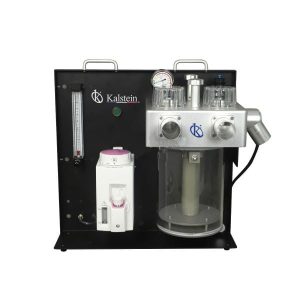The potential and limitations of life are reflected in veterinary medicine. This noble discipline goes beyond simply providing treatment to animals; it is a commitment to and pursuit of animal welfare. In this scenario, veterinary anesthesia plays a crucial role, however, it is surrounded by legal and ethical challenges that require exploration in our society for a better understanding.
Legal Aspects of Veterinary Anesthesia
In most countries, the administration of anesthesia in the veterinary field is an act reserved exclusively for veterinary medicine professionals. Laws may vary, but in general, it is illegal for anyone else to administer anesthesia without the constant supervision of a licensed veterinarian.
Laws have also become stricter regarding the necessary documentation to anesthetize an animal. Specifications include the type of anesthesia used, the dose administered, and postoperative monitoring. Non-compliance with these regulations can lead to severe legal sanctions for clinics or professionals.
Ethical Challenges of Anesthesia in Veterinary Medicine
Veterinary anesthesia involves a series of ethical challenges that must always be considered. Incorrect administration of anesthesia can cause unnecessary pain to an animal, a practice considered unacceptable and inhumane. In addition, specialists also face the ethical dilemma of determining whether anesthetizing an animal too ill for surgery is the best option.
Owner’s Consent and Understanding
Another key component of anesthesia is the animal owner’s consent. As veterinarians, it is essential to explain to owners the risks involved in anesthesia, as well as the reasons why it is recommended or required.
It is also ethically necessary to provide complete and accurate information in terms that the owner can understand. In this sense, informed consent becomes a vital component in the ethics of anesthesia administration.
Continuing Education and New Technologies
Being an area of knowledge in constant evolution, scientific and technological updating for animal health professionals is essential in legal and ethical terms. Technological advances in medical equipment such as anesthesia monitors allow for more direct and precise control of animals under anesthesia, minimizing risks and increasing safety.
The legal and ethical aspects of veterinary anesthesia are fundamental to animal welfare and professional responsibility. It is imperative that veterinarians be aware of these aspects to carry out their tasks in accordance with the rules and regulations in force and with the utmost respect for animal life. Continuing education and a correct understanding of these aspects are essential for the ethical, legal, and effective practice of veterinary medicine.

